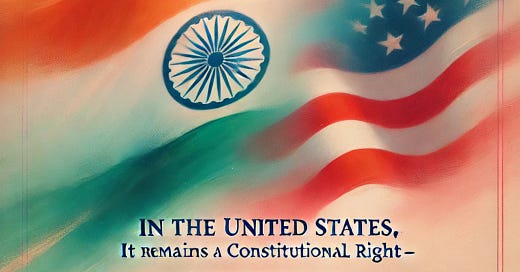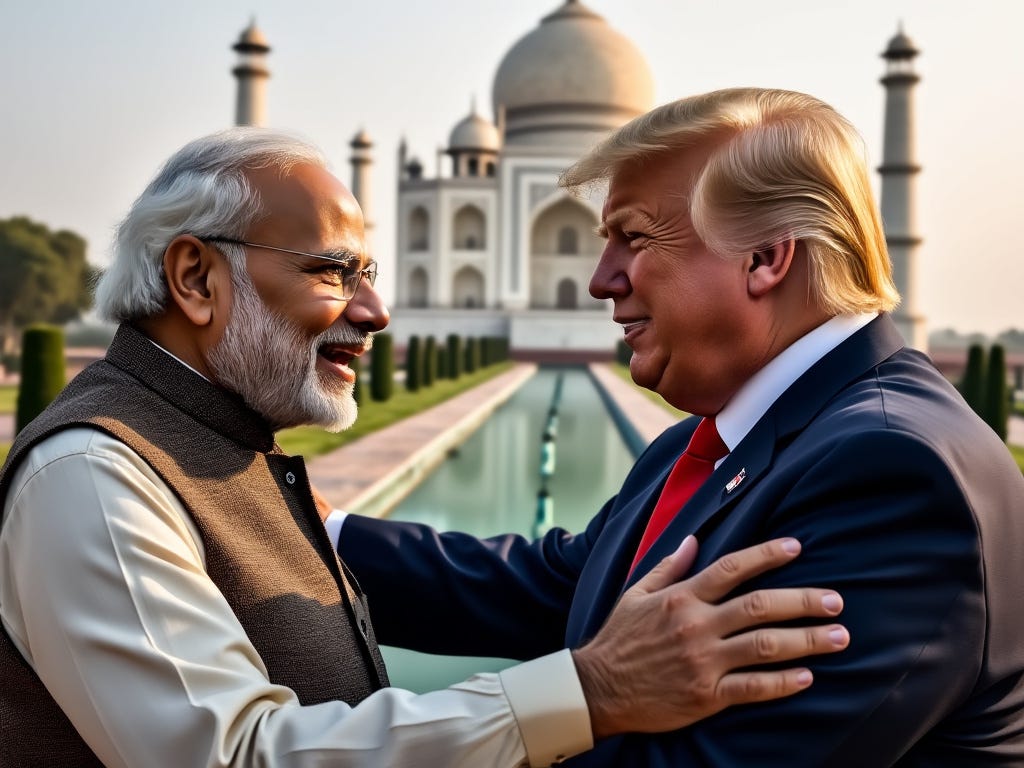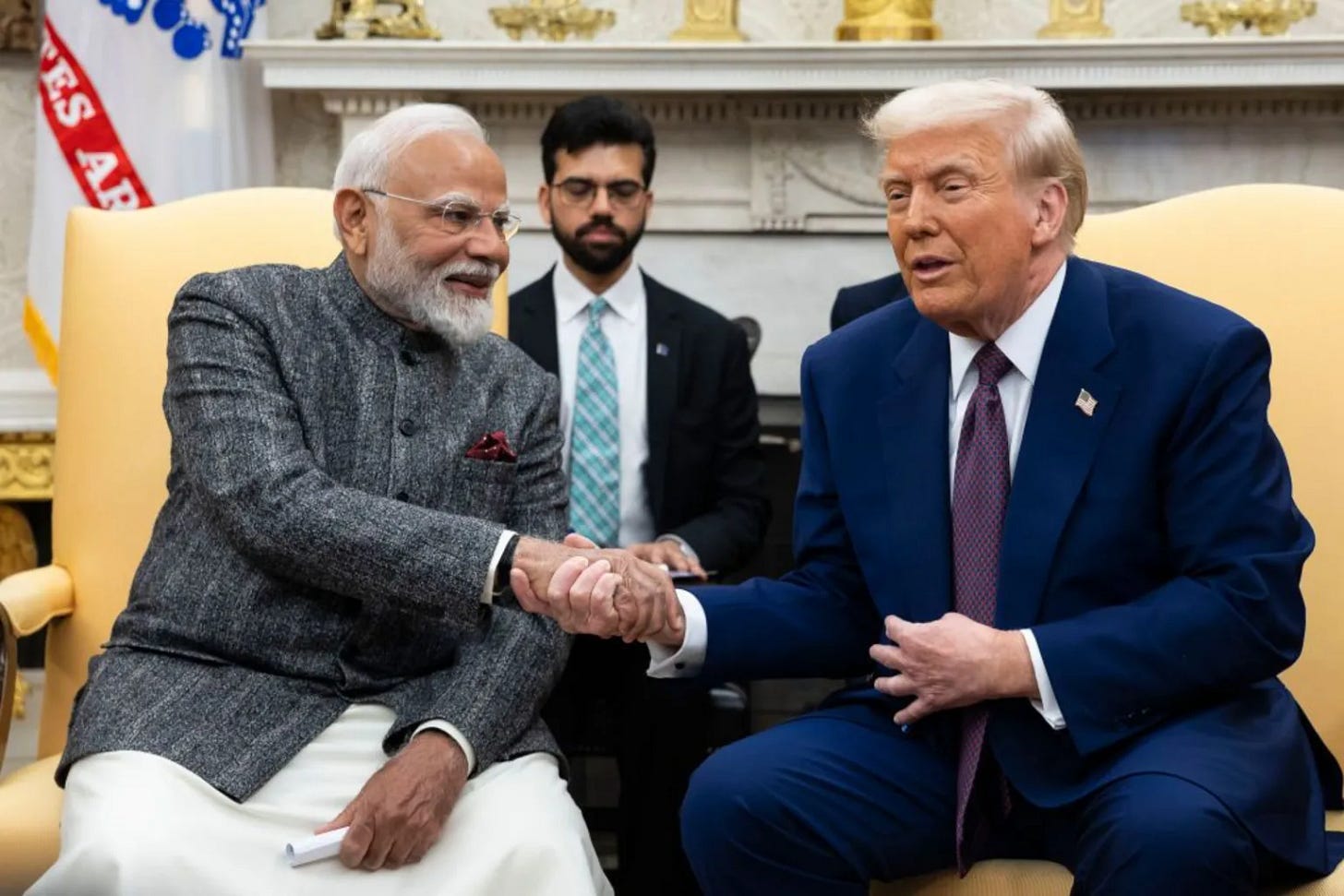Born in India, Citizen by Birth? Not Necessarily—a Shifting Reality
The debate over citizenship by birth is far from over. In India, the door has already closed on unrestricted jus soli. In the United States, it remains a constitutional right—at least for now.
Introduction: The Birthright Citizenship
Once upon a time, being born on Indian soil ipso facto conferred Indian citizenship by birth. That is no longer the case. While the United States grapples with an executive order seeking to redefine birthright citizenship, India has long abandoned unrestricted jus soli (citizenship by birth). Today, a child born in India must meet specific conditions to qualify as a citizen—mere birth within the country's borders is no longer sufficient. How did we arrive at this shift? And what do recent developments in the U.S. reveal about the evolving global approach to citizenship by birth?
The Evolution of India's Citizenship by Birth Laws
From Open Doors to Restrictions: A Historical Shift
India’s journey from granting automatic citizenship by birth to imposing restrictions has been shaped by concerns over illegal migration and national security.
1950–1987: Citizenship for All
The Constitution of India, adopted in 1950, provided that anyone born in India was automatically a citizen, regardless of the nationality or status of their parents.
1987–2004: The First Restriction
The Citizenship Act was amended in 1986 to require that at least one parent be an Indian citizen for the child to acquire citizenship by birth. This was primarily done to address concerns of large-scale illegal migration, particularly from Bangladesh.
Post-2004: Tightening the Rules
The 2003 amendment, enforced from December 3, 2004, made the law even more stringent:
A person born in India is a citizen by birth only if both parents are Indian citizens or if one parent is a citizen and the other is not an illegal migrant.
This effectively ended unrestricted birthright citizenship in India, making it conditional and dependent on parental status.
The Tibetan Refugees and Citizenship by Birth: A Legal Battle
A major test of India's evolving citizenship laws arose in the case of Tibetan refugees born in India. Despite being born on Indian soil, many Tibetans were denied Indian citizenship. The issue eventually reached the courts.
Namgyal Dolkar v. Government of India (2010)
The Delhi High Court ruled in favor of Namgyal Dolkar, a Tibetan refugee born in India in 1986.
The court held that under the Citizenship Act, anyone born between January 26, 1950, and July 1, 1987, was an Indian citizen by birth, including Tibetan refugees.
It directed the government to issue an Indian passport to Dolkar, setting a precedent for other Tibetans in similar situations.
Phuntsok Wangyal v. Union of India (2016)
The Delhi High Court reaffirmed the principle that Tibetans born in India during the eligible period were Indian citizens.
It ruled that the government could not deny Indian passports to eligible Tibetans merely because they were categorized as "foreigners" in official records.
Consequential Government Action
Despite the court rulings, Tibetans continued to face bureaucratic hurdles in obtaining citizenship documents. In response:
2014: The Election Commission of India directed that Tibetans born in India before 1987 were eligible to vote.
2018: The Ministry of External Affairs formally instructed passport authorities to issue Indian passports to Tibetans born in India between 1950 and 1987, recognizing them as citizens by birth.
This legal saga highlighted the restrictive shift in India's citizenship laws—while Tibetans born before 1987 were entitled to Indian citizenship, those born after had no such right unless they met the 2004 conditions.
The Citizenship Amendment Act (CAA): A Parallel Controversy
While citizenship by birth laws have undergone significant changes, India’s broader citizenship framework was further altered by the Citizenship Amendment Act (CAA), 2019. The CAA fast-tracks Indian citizenship for undocumented non-Muslim refugees from Pakistan, Bangladesh, and Afghanistan who entered India before December 31, 2014. However, it does not grant automatic citizenship—it only provides an expedited path to naturalization.
The law sparked nationwide protests and legal challenges, with critics arguing that it violates the secular and inclusive principles of the Indian Constitution. Implementation was stalled due to the delay in framing the required Citizenship Amendment Rules—finally notified in March 2024. Despite this, the law remains under judicial scrutiny, with a Supreme Court hearing ongoing to determine its constitutional validity.
Does the CAA affect citizenship by birth? No. The CAA is about citizenship by naturalization, not birthright citizenship. However, its introduction reflects India's broader shift toward a conditional and selective approach to citizenship, reinforcing the trend seen in the tightening of birthright citizenship rules since 2004.
Citizenship by Birth in the U.S.: The Trump Executive Order and Its Fallout
The U.S. Citizenship Clause: The Foundation of Birthright Citizenship
The foundation of birthright citizenship in the U.S. lies in the Citizenship Clause of the 14th Amendment, ratified on July 9, 1868. This clause states:
"All persons born or naturalized in the United States, and subject to the jurisdiction thereof, are citizens of the United States and of the State wherein they reside."
The amendment was primarily enacted to overturn the Supreme Court’s decision in Dred Scott v. Sandford (1857), which had denied citizenship to African Americans. By explicitly granting citizenship to all persons born on U.S. soil, the 14th Amendment sought to establish a clear and inclusive definition of citizenship, regardless of race or ancestry.
A landmark case that solidified this interpretation was United States v. Wong Kim Ark (1898). The Supreme Court ruled that a child born in the U.S. to Chinese parents, who were permanent residents but ineligible for citizenship, was ipso facto a U.S. citizen under the 14th Amendment. Writing for the majority, Justice Horace Gray affirmed:
"The amendment affirms the ancient and fundamental rule of citizenship by birth within the territory, in the allegiance and under the protection of the country, including all children here born of resident aliens."
This principle has remained largely unquestioned, with only a few exceptions—such as children of foreign diplomats or hostile occupying forces—excluded from birthright citizenship.
Trump’s 2025 Executive Order: Challenging a Long-Standing Principle
On January 20, 2025, former President Donald Trump issued Executive Order 14156, titled "Protecting the Meaning and Value of American Citizenship." This order sought to redefine birthright citizenship by excluding certain categories of individuals born in the United States, specifically:
Children born to mothers unlawfully present in the U.S. and fathers who are neither U.S. citizens nor lawful permanent residents.
Children born to mothers legally present but on temporary visas (e.g., tourists, students, temporary workers) and fathers who are neither U.S. citizens nor lawful permanent residents.
This executive order marked an unprecedented departure from the established interpretation of the 14th Amendment. Legal experts swiftly challenged the order, arguing that birthright citizenship is a constitutional guarantee, not a policy that can be altered by executive action.
Legal Pushback: The Courts Step In
Within days of the executive order’s announcement, lawsuits were filed. On January 23, 2025, U.S. District Judge John C. Coughenour in Seattle issued a temporary restraining order blocking the order’s implementation, calling it "blatantly unconstitutional."
Experts contend that modifying birthright citizenship would require a constitutional amendment, needing a two-thirds majority in both houses of Congress and approval from three-quarters of U.S. states—a nearly impossible feat in today's polarized political climate. As Harvard Law Professor Gerald Neuman put it:
"The Constitution is clear: Those born on American soil, even to undocumented parents, are citizens of the United States… The President has no authority to change citizenship rules at all."
India and the U.S.: Converging Paths?
While the contexts are different, the broader trend is clear—countries are becoming more restrictive about who qualifies for automatic citizenship by birth.
In India, birthright citizenship has been practically abolished since 2004.
In the U.S., it remains intact for now, but faces unprecedented challenges.
The core question both nations face is: Should citizenship be a birthright or a privilege determined by parentage and legal status?
Summing Up: The Future of Birthright Citizenship
The debate over citizenship by birth is far from over. In India, the door has already closed on unrestricted jus soli. In the United States, it remains a constitutional right—at least for now. What remains to be seen is whether global political shifts will continue pushing more nations toward a model where birth alone is no longer enough to claim citizenship. If the current trend holds, the era of automatic citizenship by birth could soon become a thing of the past—one that may well create a class of stateless persons. But for those unbound by the constraints of citizenship, could this be a form of nirvana, a liberation from national allegiances? Or will it be perpetual exile, a life adrift in a world where borders define belonging?






